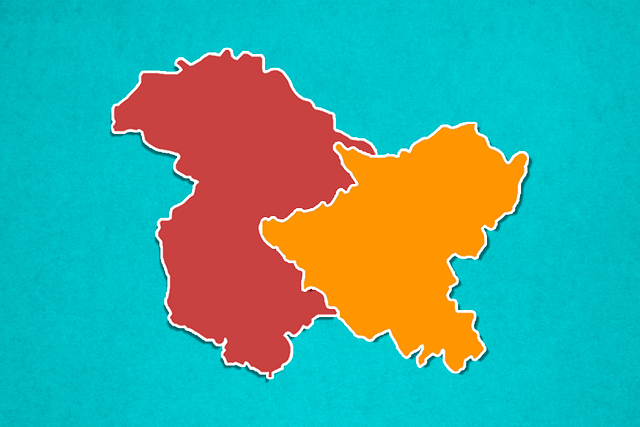
Jammu And Kashmir Officially Bifurcated Into Two UTs: All Central Laws Now Applicable To UTs Of J&K, Ladakh
Jammu and Kashmir ceased to exist as a state from midnight Thursday (31 October), and its official bifurcation into two Union Territories - of Jammu and Kashmir, and Ladakh, has taken effect.
The state has been officially divided into the two Union Territories pursuant to the Jammu and Kashmir Reorganisation Bill, 2019, which the government passed in Parliament on 5 August.
The Central government had also that day abrogated Article 370 that gave special status to Jammu and Kashmir.
On Thursday (31 October), Girish Chandra Murmu, a former bureaucrat from Gujarat, is to take oath as the first Lieutenant Governor of Jammu and Kashmir UT.
Former IAS officer R K Mathur will be sworn in as the first Lt. Governor of the Union territory of Ladakh.
While the UT of J&K will have a legislative assembly, Ladakh will be a UT without legislature.
In a notification dated 30 October, the Home Ministry has clarified that certain central laws and rules made there, which are applicable to the existing state of Jammu and Kashmir, would be applicable to both the union territories.
The ministry also said that those Central laws, Ordinances and rules which were earlier not applicable to the J&K will henceforth be applicable to the UTs of Jammu and Kashmir and Ladakh.
The ministry stated that all the provisions of the Constitution as amended from time to time have become applicable to the existing Jammu and Kashmir with effect from the 5 August 2019, and any notification issued or order, rule or appointment made during the period between the 5 August 2019 and 31 October are "required to be protected, as if such actions have been taken in accordance with law".
There are references in the state laws that have been applied to the expressions 'permanent residents' or 'hereditary state subjects' are now omitted.
The notification said there are persons or authorities who have "taken oath under the Constitution of Jammu and Kashmir or any other law", and their actions and proceedings are required to be validated till the appointed day of the principal Act".
(With inputs from IANS)